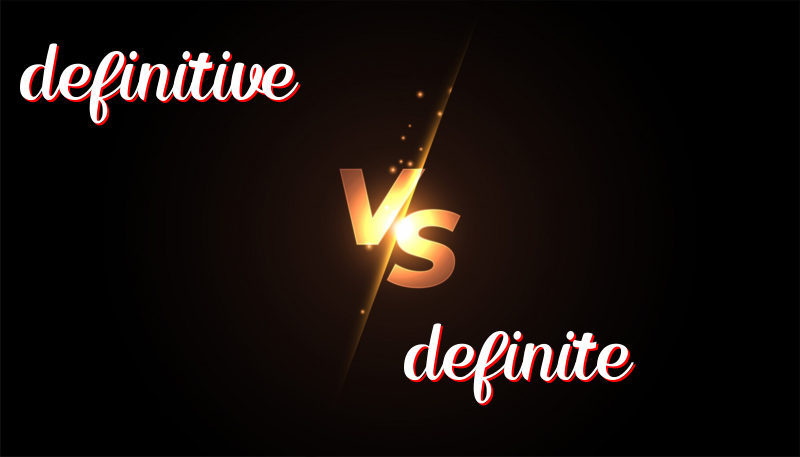Understanding the Difference Between Definitive and Definite
Definitive vs. Definite
History: The word “definite” has been used in English since the 16th century, while “definitive” emerged around the 18th century. Both words have their origins in Latin.
How to use them:
Definitive: used to describe something that is final, authoritative, or conclusive.
- His resignation letter was the definitive proof that he was leaving the company.
- The team conducted a study to provide a definitive answer to the research question.
- This book is the definitive guide to gardening for beginners.
- Her speech was considered the definitive statement on the issue.
- The court’s decision was definitive and could not be appealed.
Definite: used to describe something that is clear, certain, or without doubt.
- I have a definite plan to go on a trip next month.
- She made a definite promise to help me with my homework.
- The teacher gave us a definite deadline for submitting our projects.
- He had a definite feeling that something good was going to happen.
- There was a definite improvement in her math scores after extra practice.
Trick to Remember the Difference: Think of “definite” as something clear, sure, or certain, while “definitive” sounds more official, final, or ultimate.
Summary:
Use definitive when you want to indicate something as final, conclusive, or authoritative. Use definite when you want to express something as clear, certain, or without doubt. Remember, definitive is like the final answer, while definite is like something that is for sure.

Leave a Reply
You must be logged in to post a comment.